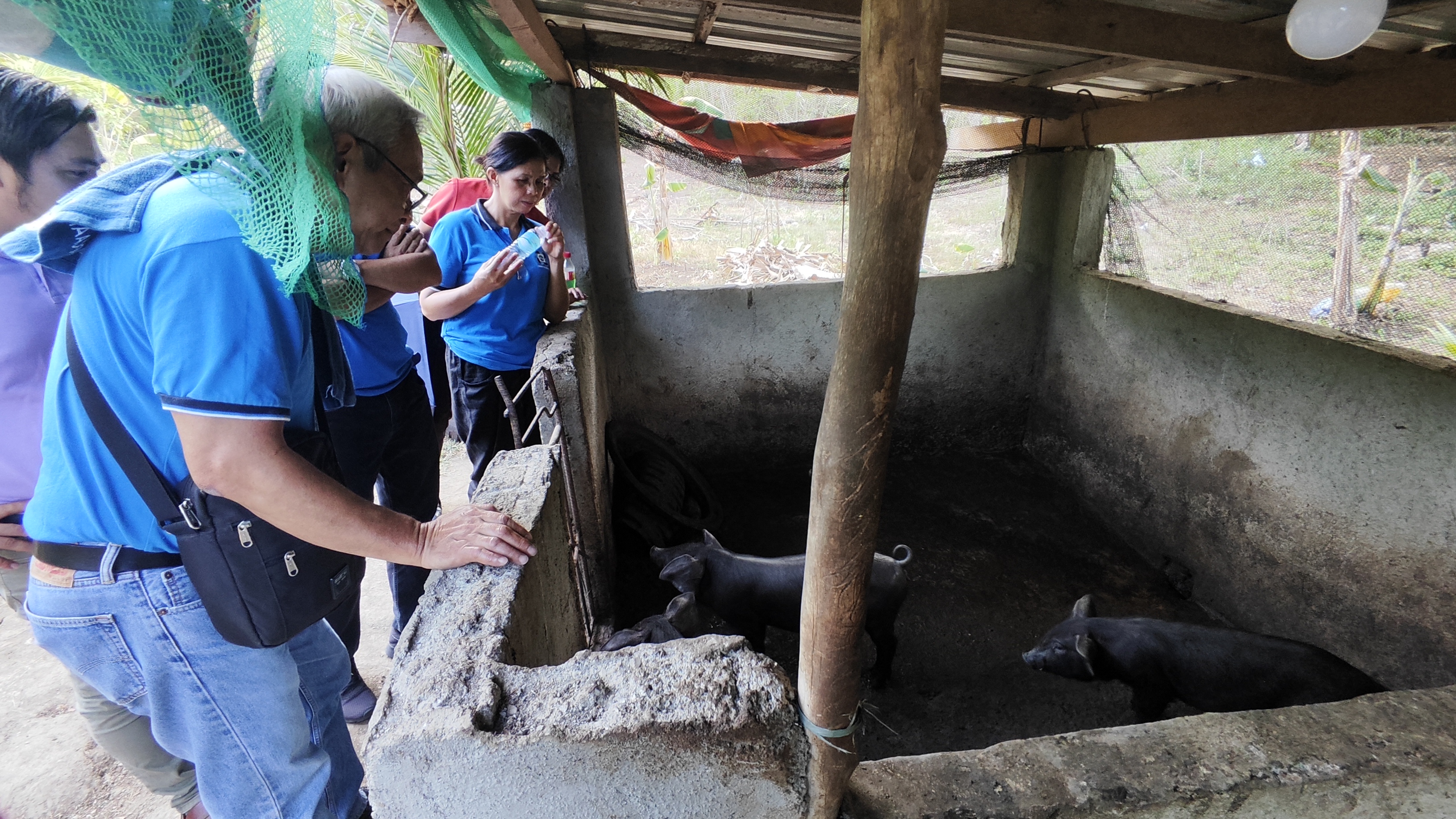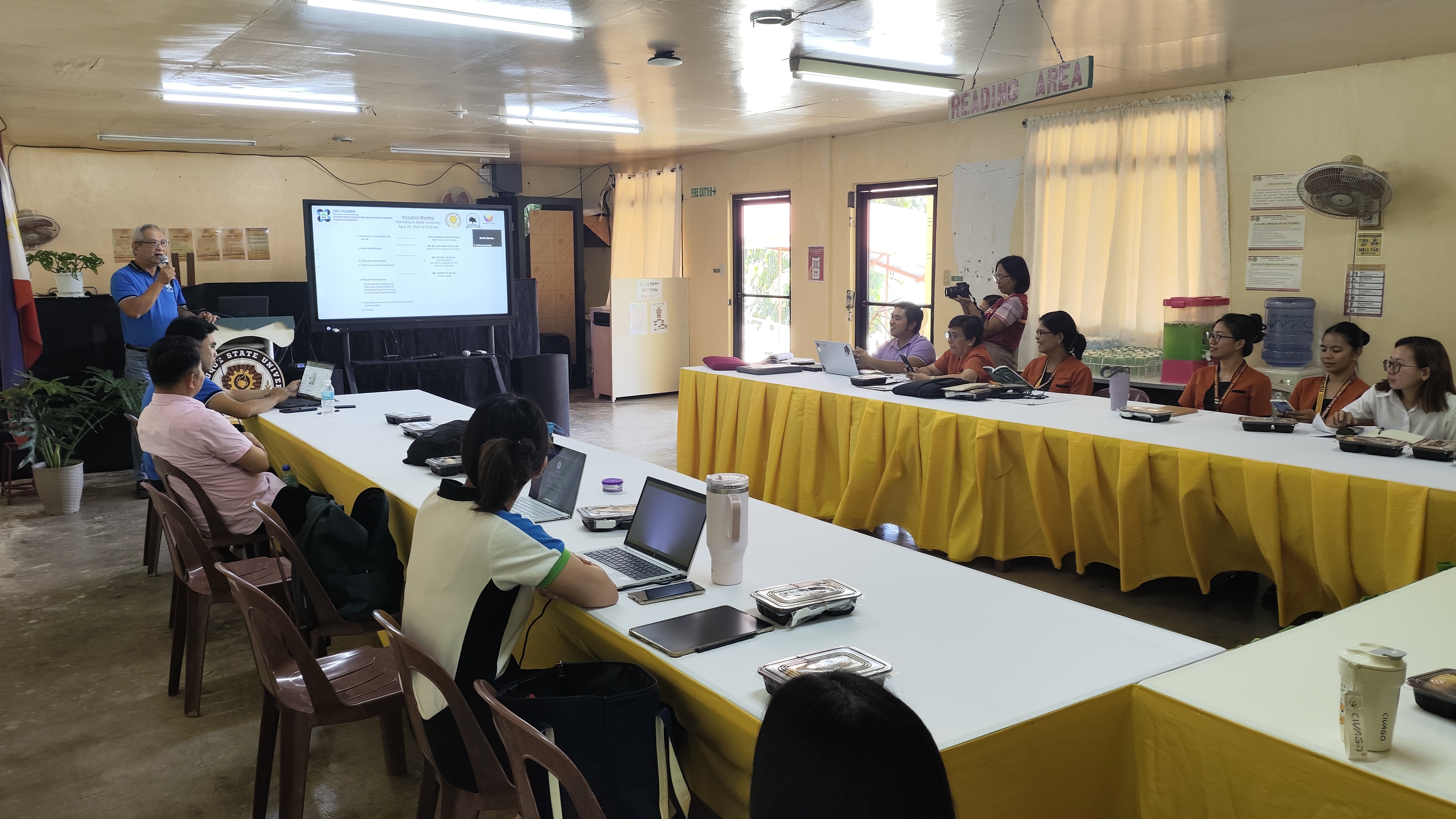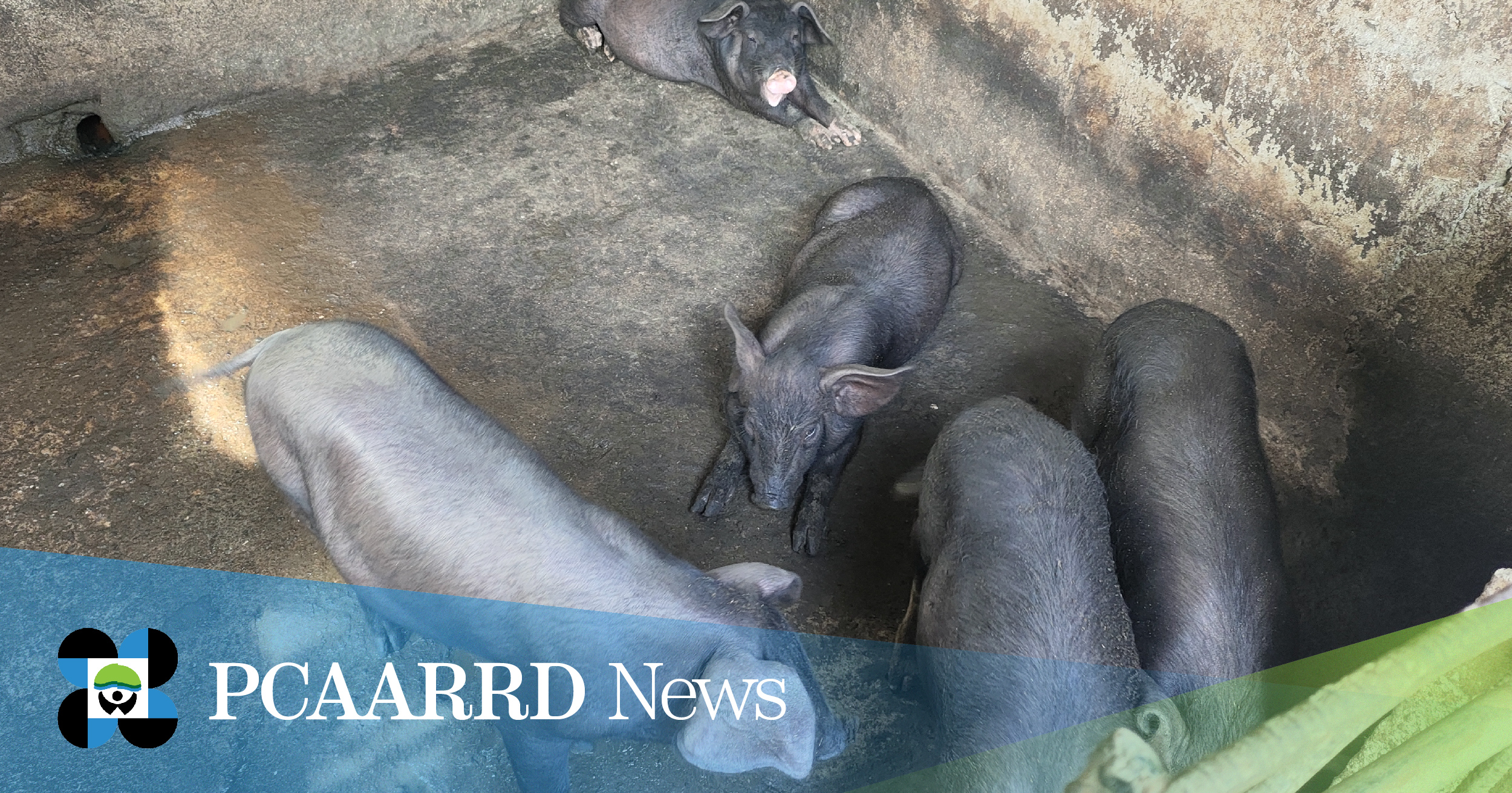
Despite ongoing challenges faced by the swine industry, Marinduque State University (MarSU) and the Philippine Council for Agriculture, Aquatic and Natural Resources Research and Development of the Department of Science and Technology (DOST-PCAARRD) have taken another step forward to boost the production of Markaduke native pig, a native breed produced by MarSU and is a major agricultural commodity in the province.
The initiative to boost Markaduke production was marked by the inception meeting of MarSU and DOST-PCAARRD for collaborative project, “Enhancing the Genotypic and Phenotypic Characteristics of Markaduke Native Pig through Close Nucleus Breeding System.”
Held in Torrijos, Marinduque, the meeting brought together MarSU officials, faculty researchers, and administrative staff to kickstart this vital initiative. Dr. Ma. Edelwin M. Blasé, MarSU Vice President for Research and Extension, expressed her gratitude to DOST-PCAARRD for its unwavering support to MarSU and in advancing native pig research and development in the region.
The Markaduke native pig is prized for its unique traits and suitability for local dishes like ‘lechon.’ Dr. Synan S. Baguio, DOST-PCAARRD Director of the Livestock Research Division, emphasized the need for MarSU researchers to expand production beyond the province.

“We must shift our mindset toward scaling up Markaduke native pig production in other MIMAROPA provinces,” Dr. Baguio stated. “By increasing supply to meet lechon demand, we can create livelihood opportunities and maximize economic benefits from research outputs.”
Dr. Baguio also reminded MarSU that timely compliance with reportorial requirements will be crucial to ensure the project’s successful implementation.
This initiative marks a significant stride in preserving and enhancing the Markaduke native pig—a valuable genetic resource and economic driver for Marinduque.

